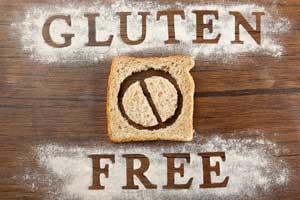 It is no secret that the gluten-free food industry has seen tremendous growth over the past year. Expected to reach $15 billion in sales by 2016, the gluten-free trend is not only found in supermarkets, but restaurant chefs are catering to those who are gluten-free or gluten-sensitive with special dishes as well.
It is no secret that the gluten-free food industry has seen tremendous growth over the past year. Expected to reach $15 billion in sales by 2016, the gluten-free trend is not only found in supermarkets, but restaurant chefs are catering to those who are gluten-free or gluten-sensitive with special dishes as well.
People following the trend are torn: Is this just another health fad hitting its peak, or is it a real issue? Scientists now show that non-celiac gluten sensitivity – or NCGS – is in fact a problem in a growing amount of people. Those with NCGS experience bloating, gas, fatigue, and other IBS-like symptoms after consuming gluten. However, even after going gluten-free, some symptoms usually persist.
Researchers decided to test their findings by putting 37 patients on a diet low in certain carbohydrates. This diet, called Fodmaps, is an acronym for the various types of sugars that have been found to trigger abdominal symptoms in certain people. Including fructans (soluble fiber in bananas), lactose (dairy), fructose (found in many fruits, some vegetables, and products with high-fructose corn syrup), galactans (soybeans and soymilk), and polyols (artificial sweeteners), following the Fodmaps diet is not easy at first. However, using the process of elimination, it is possible to pinpoint exactly which groups (or foods) cause unwanted symptoms. Those that do not bother the individual are simply added back into their diet.
The Fodmaps diet is worth trying if you think you fall into the NCGS category. If you are definitely not celiac – determined using blood tests and biopsies – then an elimination diet will help determine if you are only gluten-intolerant, or if it is something more. Who knows, maybe gluten isn’t the worst abdominal pain “trigger” that it has been made out to be: Some participants of the Fodmaps plan safely added wheat back into their diets.






























 Is the doctor really always right? Is it okay to question the expert? If you have worried that something was wrong even though the doc reassured you that it wasn’t, you are not alone.
Is the doctor really always right? Is it okay to question the expert? If you have worried that something was wrong even though the doc reassured you that it wasn’t, you are not alone.  In today’s hectic, fast-paced world, it’s easy to become overwhelmed by stress and have negative thoughts when things don’t go as planned. The good news is that there are numerous techniques you can use to combat
In today’s hectic, fast-paced world, it’s easy to become overwhelmed by stress and have negative thoughts when things don’t go as planned. The good news is that there are numerous techniques you can use to combat 
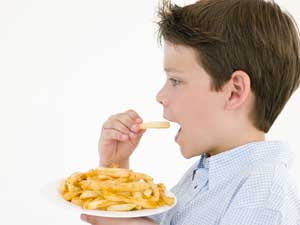 As many of you know, eating processed food can lead to obesity, heart disease and diabetes in adults. But you may be surprised to learn the harmful effects of
As many of you know, eating processed food can lead to obesity, heart disease and diabetes in adults. But you may be surprised to learn the harmful effects of  MYTH OR MEDICAL MIRACLE?
MYTH OR MEDICAL MIRACLE?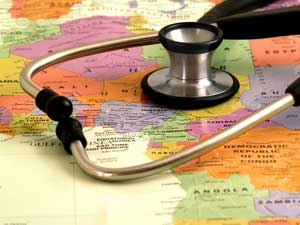 While Americans are dying less from cancer and heart-related conditions, more are now affected by
While Americans are dying less from cancer and heart-related conditions, more are now affected by  If you are like most people, your holiday social calendar is filled with parties, fundraisers, work events and family gatherings. While some people have taken the time to prepare ahead to dazzle
If you are like most people, your holiday social calendar is filled with parties, fundraisers, work events and family gatherings. While some people have taken the time to prepare ahead to dazzle 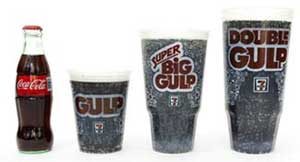 Sugar-sweetened beverages may be the number one cause of adult-onset diabetes. Do you think ‘gallon-sized $1 drinks’ give you more or less for your money? How does a
Sugar-sweetened beverages may be the number one cause of adult-onset diabetes. Do you think ‘gallon-sized $1 drinks’ give you more or less for your money? How does a 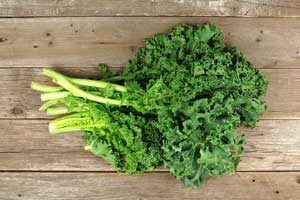 If you’re having a procedure or
If you’re having a procedure or